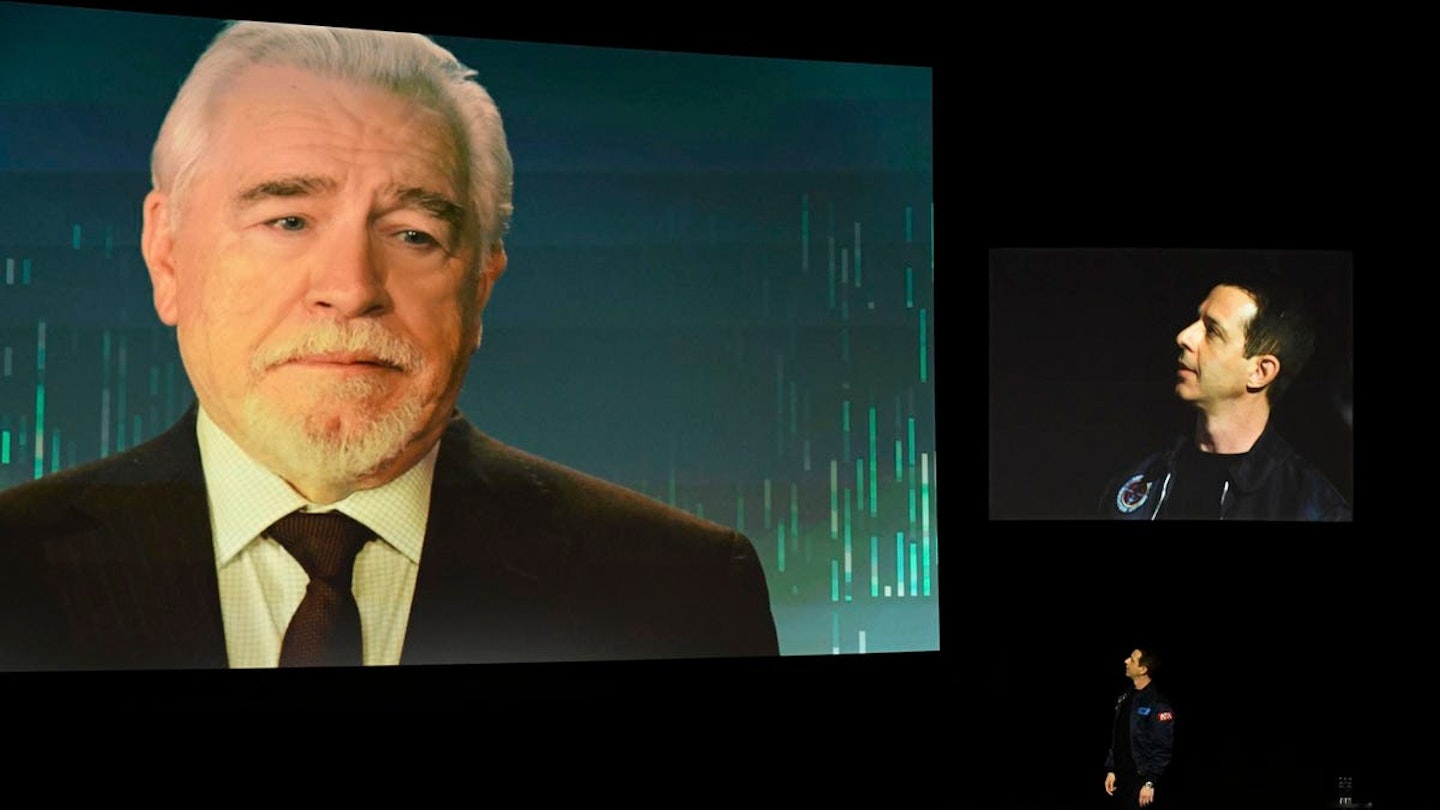Imagine you’re a billionaire. I know, it’s a stretch for most of us at the moment. But just imagine having so much that there is nothing in life you actually need. What would you buy? More life, of course.
‘Give me the double click on longevity,’ barked Kendall Roy in this week’s Succession, in a case of art imitating life.
Jeff Bezos has been investing in biotech companies (including Altos, which last year opened a British-based lab near Cambridge) that use cellular reprogramming to ‘slow, halt or reverse ageing’. Mark Zuckerberg’s Breakthrough Prize annually awards $3 million to scientists making ‘transformative advances toward… extending human life’. Google founders Sergey Brin and Larry Page put $750 million behind Calico, a company that plans to ‘end ageing-related diseases’. And Peter Thiel, co-founder of PayPal, invested in the Methuselah Foundation, which aims to make ’90 the new 50’.
I know what you’re thinking. First: woah there, Voldemort. And second: where can I get some of this cellular reprogramming?
The trickle-down effect means the non-billionaires among us are interested in longevity, too. The global anti-ageing market, which still revolves mostly around botox and supplements, has been rebranded the ‘longevity industry’, and is predicted to snowball from around $191.5bn to a mind-bending $421.4bn by 2030 (according to a P&S Intelligence report).
There is now a proliferation of products promising cellular rejuvenation. Wellness brand HigherDOSE has a range of tools including an infrared sauna blanket and a PEMF (Pulsed Electromagnetic Field) mat, which can stimulate cell renewal - potentially extending lifespan - and all you have to do is lie down on it. Even skincare is getting in on the act, with Japanese brand Tatcha claiming rice, seaweed and green tea can be as protective for your skin as they are for your body.
Meanwhile, wellness resorts have shifted their focus from weight loss or visible signs of ageing to living better, for longer. The Lefay Spa in Italy runs a Longevity Programme, and Clinique La Prairie in Switzerland has launched a range of Age Defy supplements they’re calling ‘longevity in a pill’. The Japanese prefecture of Okinawa - one of the world’s five ‘blue zones’ where people live longest - now markets itself as ‘the longevity islands’, with locals offering ‘homestay experiences’ to learn the secrets of a long life from Japanese elders.
Lanserhof Resorts - where the likes of Victoria Beckham and Cara Delevingne go to reset - have been selling longevity for over 30 years, and last year opened a new location on Sylt, a windswept island known as The Hamptons of Germany. For Dr Jan Stritzke, Medical Director at Lanserhof Sylt, longevity is not about living forever. ‘For me, it's about adding healthy years,’ he says, explaining that his training as a cardiologist sparked a passion for integrative medicine. ‘I learned that we can prevent 80% of heart attacks; that is down to lifestyle interventions.’
If you have €7,120 for the weeklong ‘classic cure’ package at Lanserhof Sylt, those interventions range from cutting-edge diagnostics to natural healing methods, including expert nutrition, movement and stress management. Dr Stritzke, who may be German but gives strong Lukas Matsson vibes, extolls the importance of quality sleep, explaining how they are biohacking it with ‘human centric lighting’ and pioneering aerated beds. Of course, a week on a German island won’t extend your life all by itself (no matter how good the sleep). It’s the tools you learn at Lanserhof that make the difference. A big proponent of fasting, Dr Stritzke says one of the best things we can do for longevity is to ‘stop eating all the time’, which I try not to take personally.
The good news is that most life-extending practices do not require a Silicon Valley paycheque. Professor Robert Thomas, a consultant oncologist and the author of How to Live, tells me the best advice is the stuff we already know, but often fail to do. ‘We always think that age-related diseases happen to other people,’ he says. ‘Sadly, when the degenerative process sets in, such as early dementia or type two diabetes, 60-70% of the damage has been done. You've got to start when you're fit and healthy, but try telling that to a 20-year-old.’
His best advice for longevity is:
Move your body for three hours a week. If you can do it outside in the morning, it’ll kickstart your circadian rhythm.
Pump up the plant-based foods, and reduce sugar, particularly on an empty stomach when it will cause harmful glucose spikes. Gut health is ‘the cornerstone of everything’ he says.
Prioritise sleep, spend quality time with friends and family, and find a way to manage stress - whether that be yoga, meditation, boxing or therapy.
Importantly, don’t obsess over it.
‘I’m not crazy about dying,’ said Roman, in this week’s Succession. ‘It just feels very… one-size-fits-all.’
‘I know, right?’ replied Kendall. ‘It’s bullshit.’
But trying to buy your way out of death is no way to live. So let’s enjoy life while we have it, and leave the Franken-cell experiments to Bezos and co. After all, wouldn’t you rather have more life in your years, than more years in your life?
